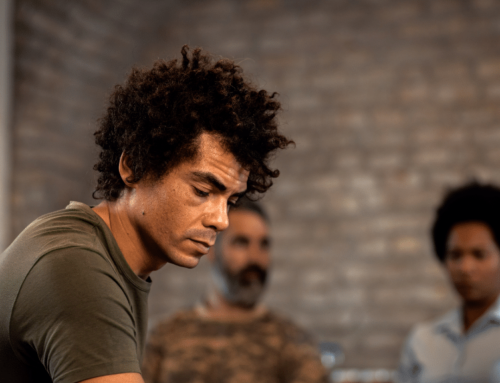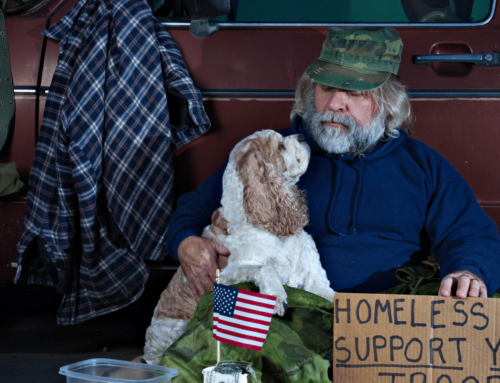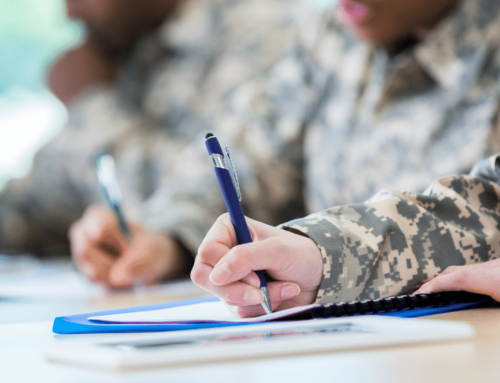How To Treat PTSD
Receiving a post-traumatic stress disorder (PTSD) diagnosis can make you feel scared, helpless, ashamed, and confused. For veterans who have experienced active combat or other forms of trauma as a result of their service, it may seem difficult to believe that you’ll ever be able to recover and move on.
PTSD Treatment Options
However, with enough time and the right treatment and support, healing from PTSD is possible. To help you get started, we’ve outlined some of the interventions that are known to help mitigate or cure PTSD.
- Psychotherapy. Psychotherapy encompasses a broad range of different modalities that can be incorporated in PTSD treatment for veterans. These include:
- Cognitive Behavioral Therapy (CBT). CBT helps individuals recognize how their thoughts, feelings, and behaviors contribute to the outcomes in their lives. By cultivating an awareness of these patterns, individuals can work to change them, work through difficult experiences, and cultivate healthier reactions and coping skills.
- Exposure Therapy. Exposure therapy is a type of behavioral therapy in which the patient is (safely) reintroduced to the environment or situation that is the source of their trauma—for example, by re-imagining the experience or using virtual reality. This can help reduce fear and avoidance tendencies around traumatic events or memories.
- Eye Movement Desensitization and Reprocessing (EMDR) Therapy. In EMDR therapy, individuals engage in specific types of eye movements and/or bilateral stimulation while a therapist guides them in accessing traumatic memories. This treatment helps the brain reprocess the traumatic event, which can make the feelings around it more manageable.
- Medication. In some cases, individuals may benefit from pharmacological help in handling the symptoms of PTSD. This might include antidepressants or anti-anxiety medications.
- lifestyle changes. While lifestyle changes alone aren’t always enough to treat PTSD, they can complement other types of therapy. Tactics such as practicing mindfulness, limiting or eliminating alcohol/drug use, engaging in regular exercise, connecting with friends and family, and getting enough sleep can improve your overall well-being and support your recovery process.
Note that the list above isn’t an exhaustive one, and determining the right treatment for you is best done with the help of a qualified doctor or mental health professional. However, familiarizing yourself with the options available can help you make informed choices about your recovery process.
National Veterans Homeless Support seeks to eliminate homelessness among veterans in Central Florida and nationwide. NVHS takes a proactive, intervention-based approach to homelessness by meeting homeless veterans where they are and helping them from there. Through programs like Search and Rescue Outreach, NVHS helps homeless veterans get the supplies they need to survive, connects them with support and resources, and helps them transition off the streets and into temporary or permanent housing. If you’re able, consider supporting our mission by donating or signing on as a volunteer.





